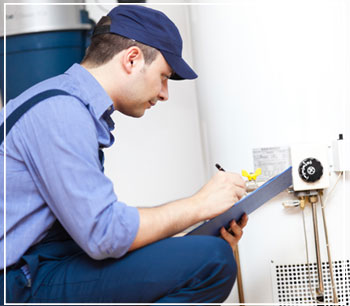Is It Time to Replace Your Water Heater?
 If your water heater is located in the garage or basement, it is unlikely that you’ll notice any problems right away. Unlike a clogged toilet or sink drain, the damage is often not visible without a careful inspection. To avoid causing very serious damage to the area of your home where the water heater is located, educate yourself on these warning signs that it is time to be replaced.
If your water heater is located in the garage or basement, it is unlikely that you’ll notice any problems right away. Unlike a clogged toilet or sink drain, the damage is often not visible without a careful inspection. To avoid causing very serious damage to the area of your home where the water heater is located, educate yourself on these warning signs that it is time to be replaced.
Past Warranty
All water heaters come with their own warranty depending on the brand and quality, but generally, it is recommended that you replace your old water heater after 10 years. Some people are able to go beyond the 10-year mark because their family uses little water or they can afford to wait until they find a leak. Nevertheless, to give yourself an idea if you’re approaching or have passed 10 years with the same water heater, locate the serial number. You can decipher the manufacturing date from this code in a few simple steps. For example, if the number is E062163749:
- The letter E represents the month. The fifth letter in the alphabet, the E in the serial number indicates the fifth month. This water heater was manufactured in May.
- The first two digits of the code, 06, represent the year in which the heater was manufactured: 2006.
This May, that water heater would be 10 years old. If your water heater is in an area that could be devastated by water damage, do not wait for a leak to have it replaced; it is better to spend the money on a new water heater every 10 years than for an area in your home to be irreparably damaged.
Unusual Noises
All water heaters make noise when they are in use, but there is a difference between the usual sound that indicates water heating up and one that signifies a problem. A rumbling or banging sound when the water is running could be from sediment that has built up over time. A layer of hardened sediment in the tank will require more energy to heat the water, increasing your gas or electricity bill. This will eventually lead to tiny cracks or holes in the metal and water will start to leak out.
There’s A Leak
Water leaks are a major concern. If a small amount leaks every time your water heater is running, it could result in a tiny flood before you realize there’s a problem. Water leaks can also cause damage that isn’t always visible. Hidden mold and rot could be accumulating in enclosed spaces where the pipes run in your home, which could eventually cause health issues for you and your family. If you spot a leak and decide to replace your water heater, make sure the water is not actually leaking from the fittings or connections to the tank.
Additional Tips
If you’ve recently replaced your water heater, here are a few tips to make it last longer:
- Decreased water pressure can be fixed by testing the pressure relief valve. When you lift the handle and let go, it should release a stream of water into the overflow drainpipe. Replace the valve if water does not burst out.
- To get rid of the sediment that builds up in the pipes as water ages, drain the water heater twice a year for increased efficiency.
- To avoid overheating your system, set the temperature to 120 degrees Fahrenheit. Temperatures above that become a risk for third-degree burns, especially in children.




